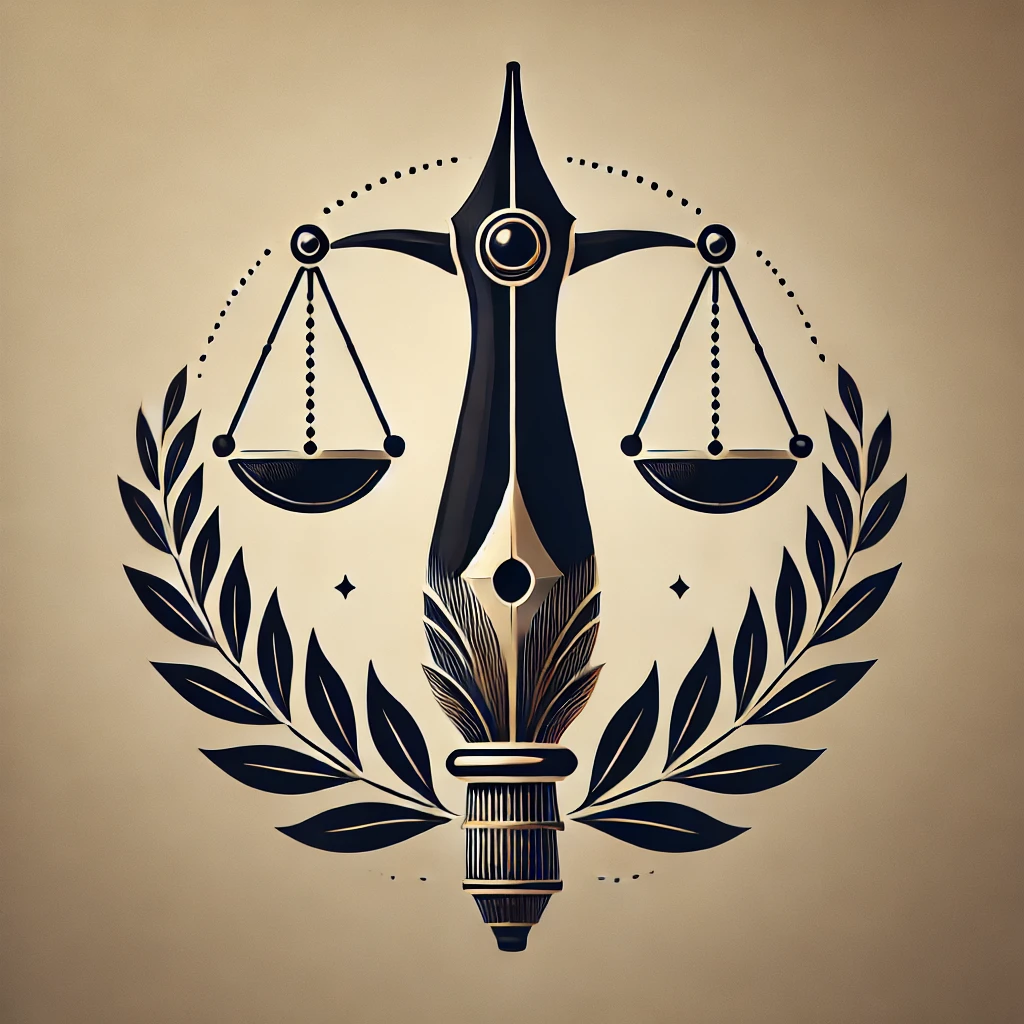The discovery process is a critical component of personal injury lawsuits. As the injured party, knowing what to expect and how to approach each phase of the discovery process can make a major difference in the ultimate outcome of your case.
While all states have rules and guidelines governing how discovery must be conducted between opposing parties, the purpose and benefits of the discovery process are substantially the same.
This article covers the personal injury discovery process and the common discovery tools used by each side to build their case.
What Is The Discovery Process?
In a personal injury lawsuit, the discovery process allows both sides to thoroughly investigate the facts of the case and prepare for trial.
Discovery tools such as depositions, interrogatories, and document requests, and the procedural rules that govern them, help facilitate the orderly exchange of information about the case. The discovery rules also allow both sides to discover the opposing party’s evidence, such as witness testimony.
These tools help uncover evidence vital to understanding the details of the personal injury case, ensuring that both sides are prepared for trial. They are also helpful for developing effective trial strategies and facilitating settlement negotiations.
In most states, both sides must complete their discovery of the other side at least sixty days before trial.
What Are The Different Types of Discovery?
Discovery tools in personal injury litigation include:
What Are Depositions?
Depositions are out-of-court judicial proceedings
Depositions are often conducted in a lawyer’s office. Under the rules of evidence, deposition proceedings have the same force and effect as giving testimony under oath at trial before a judge and jury.
Depositions usually last one to three hours. In complex, high-stakes cases, the process can take a day or more to complete.
Are Depositions Commonly Used in Personal Injury Cases?
Yes. In personal injury cases, as in most civil cases, courts encourage lawyers to depose witnesses as early as possible in the litigation process so they can be fully prepared to try their case as quickly and efficiently as possible.
What Are the Benefits of Depositions?
Lawyers favor depositions over most other forms of discovery.
Depositions are widely used and highly effective in assisting lawyers prepare their cases for trial.
Benefits of Depositions Include:
- Avoids Trial by Ambush: Depositions lock down the witness’s sworn testimony so there are no surprises at trial.
- Facilitates Settlement: Since depositions allow the lawyers to know what the witnesses will say should the matter proceed to trial, both sides have a better sense of the case’s settlement value.
- Saves Valuable Court and Attorney Time: Having taken the witness depositions, the lawyers know what to expect at trial and can zero in on the crucial areas of their testimony, thereby saving valuable court time.
What is a Court Reporter?
The court reporter’s role in depositions
In most states, at deposition, the court reporter’s official role is to administer the oath and record (usually by stenograph) the proceeding, including all of the lawyers’ questions, witness answers, and the lawyer’s objections.
What happens in depositions?
The court reporter begins the deposition by asking the lawyers to state their names and who they are representing. The court reporter then formally swears in the witness.
From then on, the witness will be testifying under penalty of perjury.
Can a deposition damage a witness’s credibility?
Yes. If a witness gives testimony at trial that contradicts the testimony they gave in their deposition, it can severely damage the witness’s credibility at trial.
In fact, there is a jury instruction that explicitly states that if the jury believes a witness was untruthful in one part of their testimony (such as in their deposition), the jury can infer that the witness was untruthful in other parts of their testimony including at trial.
Under cross-examination, a trial lawyer will exploit the fact that the witness changed their testimony and will be allowed to read that part of the deposition to the jury. The impact on the witness’s credibility is embarrassing and can be extremely damaging to their case.
Since depositions have the same force and effect as sworn testimony, experienced lawyers tend to spend a great deal of time preparing their witnesses for deposition.
How Does a Lawyer Prepare a Witness for Deposition?
It is common practice that if you are the witness answering the questions in a deposition (called the deponent), your lawyer has already fully prepared you for your deposition.
Most personal injury lawyers believe that failing to thoroughly prepare their clients for deposition is akin to committing legal malpractice.
What Type of Deposition Advice Is Given to The Client?
Preparation includes advising on what the client can expect at the deposition. Your lawyer will likely begin by reviewing all the major facts in your case to refresh your memory of the critical events upon which you will be testifying at your deposition.
Depositions can be tricky business, and being careless about how you answer questions can cause serious damage to your case. Therefore, your lawyer will spend considerable time preparing you on how to give a truthful but careful deposition.
Your lawyer will likely advise you to:
- Refrain from giving speculative answers.
- Try to answer with either a yes or a no.
- Never answer a question you do not clearly understand
- Never guess the answer to a question.
- Never try to guess what the lawyer is trying to ask you.
- Don’t rush to answer a question.
- Never volunteer additional information.
- Only answer what has been specifically asked of you. Nothing more.
- If you don’t understand a question, tell the lawyer you don’t understand the question.

What are Interrogatories?
Interrogatories are fact-gathering questions sent by both parties. By law, the receiving party must answer under penalty of perjury. They are usually sent to opposing counsel in the early stages of the litigation.
Interrogatories, or written questions, are used extensively in the discovery process to gather basic information about the personal injury claim.
These questions might cover the details of the accident, the extent of the injuries, and the treatment received. Interrogatories help to clarify the circumstances surrounding the incident.
They are often supplemented by accident reports to build a foundational understanding of the case.
Most states require the responding party to provide their written responses within 30-45 days of being served with interrogatories.
Sometimes, written discovery asks the responding party to admit or deny a fact at issue in the litigation. In some states, such as California, this type of written discovery is referred to as requests for admissions.
Types of Interrogatories Asked of Plaintiffs
The defendant seeks to discover all evidence that the plaintiff claims that support their damages and liability claims against the defendant, which might include:
- The identity and addresses of all witnesses
- Time and exact location of the accident
- Description of how the accident happened
- Description of injuries suffered
- Specific medical providers and treatment received
- Medical history and pre-existing conditions
- Insurance coverage
Types of Interrogatories Asked of Defendants
The plaintiff will seek to discover all evidence and reasons why the defendant contends they are not responsible for the accident or the plaintiff’s resulting injuries. This class of interrogatories is called contention interrogatories.
The following examples are considered general interrogatories:
- Identity and address of the defendant
- Name and address of employer
- The identity and addresses of all witnesses
- Time and exact location of the accident
- Where was the defendant going and coming from when the accident occurred
- Description of how the accident happened
- Was the defendant working for a company when the accident occurred?
- What the defendant heard or saw just before and after the accident occurred
What Happens If Interrogatories Are Not Fully Answered?
Compelling further answers to interrogatories
Unfortunately, the responding party may try to evade fully answering the interrogatories.
It is common for the responding party’s lawyer to object and claim that the interrogatory violates an established privilege, such as the attorney-client or work-product privilege, or that the question is so vague that the responding party cannot answer it.
Time Consuming and Expensive
When the responding party refuses to answer interrogatories, the asking party is forced to file a motion requesting the court order the party to answer them, which is time-consuming and expensive.
Interrogatory answers can be used at trial to impeach a party’s credibility or jog the recollection of the party at the time of trial.
What Are Document Requests?
Document requests are vital to the discovery process in personal injury cases, and documents of all types may be considered evidence.
Most states allow litigants to obtain copies of relevant documents to prepare their cases for trial.
The defense will request medical records and other relevant documents from the plaintiff’s side to obtain detailed information about the plaintiff’s injuries, the costs incurred, loss of wages, and the types of medical treatment received.
These documents, along with accident reports and witness statements of the events leading to the incident and its aftermath, can provide a comprehensive picture of the case.
 (Above Image)A trauma and emergency room doctor points to a set of X-rays of an accident victim to determine whether the plaintiff suffered any broken bones or fractures.
(Above Image)A trauma and emergency room doctor points to a set of X-rays of an accident victim to determine whether the plaintiff suffered any broken bones or fractures.
Legal Tip
F.A.Q. Disclosing Prior Accidents and Injuries
Q. If I tell the doctor who is treating me for my current accident about my past accidents and injuries, won’t that hurt my case?
A. Prior Injuries and Accidents Must Be Disclosed To Your Treating Doctor And Your Lawyer.
Doctors treating you for your current accident injuries MUST be told of prior accidents and similar injuries.
For example, suppose you injured your neck and lower back in a previous accident for which you received medical care. In that case, you must advise your current treating medical providers and attorney of these facts.
The information about your prior injuries is medically and legally important to your health and case. First, the doctor needs accurate and truthful information to make an informed diagnosis and treatment plan for you. Second, hiding this information from your doctor will harm your and your doctor’s credibility.
For example, should the doctor be deposed, the defense lawyer might ask:
Defense Lawyer: “Doctor, when taking a patient’s history, you rely on the patient to give you truthful and accurate information about their medical history, including past accidents and injuries, and if they don’t, would you agree that your patient has a credibility problem? You get the idea as to where this is going…
Therefore, be forewarned that failing to inform your doctor of your past injuries and accidents will almost always be discovered. If so, it can substantially damage the value of your case. (Authored by Personal Injury Attorney William Salle)
Personal Injury Document Requests from The Defense to The Plaintiff
The term documents is usually construed very broadly and is usually understood to include photos and statements relating to the accident and the general and economic damages suffered by the plaintiff from the accident.
Types of document requests include:
- Hospital medical records and bills
- Individual doctor records and bills
- Pharmacy bills
- Bills for medical equipment
- Copies of X-rays
- Loss of income verification
- Photos of the accident scene and injuries sustained
- Police reports
- Witness statements
What are Requests for Admissions?
Request for Admissions is a powerful discovery tool in personal injury cases because it forces the opposing side to either admit or deny whether a fact is true or false.
Request for Admissions is also commonly used to authenticate documents at trial.
Suppose the responding party admits that the attached documents they produced are authentic. In that case, the opposing party will not need to prove the document’s authenticity during trial.
In some states, if the responding party fails to respond to a lawful request for admission within 30 days, the court, after a hearing on the issue, may deem all objections waived and admit the statement as true as a matter of law.
What is An Expert Witness Disclosure?
The expert witness disclosure process requires each side to identify any expert witnesses they plan to call to testify, along with detailed information about those experts.
Both sides commonly use expert witnesses to strengthen their cases. Experts can possess technical or medical knowledge that a jury may need to understand complex aspects of the case, such as the nature and extent of the plaintiff’s injuries.
Credible experts can make a significant difference in the outcome of a personal injury lawsuit.
The expert witness disclosure will typically include:
- The expert’s name, qualifications, and area of expertise
- A summary of the opinions the expert will provide and the basis for those opinions
- Copies of the expert’s professional resume (C.V.) and any reports or analyses they have performed on the case.
Once both sides have mutually disclosed the experts they intend to call at trial, each side will have the opportunity to depose the other side’s experts. This will ensure each side is adequately prepared to cross-examine the witness at trial.
Eight Common Misconceptions About the Personal Injury Discovery Process
1. Misconception: Discovery is a quick and easy process.
Reality: Discovery can be a lengthy and complex process, often taking months or even years to complete, depending on the complexity of the case. It involves gathering evidence, interviewing witnesses, consulting experts, and exchanging information with the opposing party.
2. Misconception: The injured party doesn’t have to participate actively in discovery.
Reality: The injured party (the plaintiff) plays a crucial role in discovery. They must respond truthfully to interrogatories (written questions), provide documents relevant to the case, submit to depositions (oral questioning under oath), and potentially undergo independent medical examinations. Failing to cooperate can negatively impact their case.
3. Misconception: Everything discussed with your attorney is confidential and won’t be discovered by the other side.
Reality: While attorney-client privilege protects confidential communications about legal strategy, certain facts, and issues confidentially discussed between lawyer and client, the attorney-client privilege is not absolute. The privilege can be waived if the privilege has been asserted for an illegal purpose. Waiver can also occur when the holder of the privilege (the client) acts in a way that is inconsistent with the communication remaining confidential. Waiver can be intentional, unintentional, or implied.
4. Misconception: The other side has to prove their case during discovery.
Reality: Discovery is about gathering information and evidence. It does not in itself determine who wins or loses. Both sides get to learn about the strengths and weaknesses of the opposing party’s case. While the plaintiff in a civil case carries the burden of proof by a preponderance of the evidence, both sides remain active in establishing their case through the discovery process.
5. Misconception: You can hide information that might hurt your case.
Reality: Attempting to hide or destroy evidence is a serious offense (destruction of evidence) and can result in severe penalties, including dismissal of the case or even criminal charges. Full and honest disclosure is required during all phases of the discovery process.
6. Misconception: Discovery is always a polite and respectful process.
Reality: Ideally, discovery should be conducted civilly and respectfully, but it can sometimes become overly adversarial. Attorneys may use aggressive tactics to obtain information or to prevent damaging testimony from being discovered but are not permitted to harass the deponent or intentionally disrupt the proceedings.
7. Misconception: The discovery process is the same in every state.
Reality: Discovery rules and procedures vary from state to state and even between federal and state courts. Specific timelines, permissible discovery methods, and the scope of discoverable information can differ significantly.
8. Misconception: Nothing new can be introduced at trial once discovery is complete.
Reality: While the goal of discovery is to uncover all relevant information, sometimes new evidence emerges after discovery has closed. Introducing such evidence at trial requires court approval and may be subject to limitations. The judge will consider factors like the importance of the evidence and the reason it wasn’t discovered earlier.
Wellness and Financial Tips Related To Your Personal Injury And Emotional Health
Wellness Tip
Financial Tip
Personal Injury Lawyers
If you have questions or require additional information about your legal rights and obligations, contact an experienced personal injury lawyer as soon as possible.


























